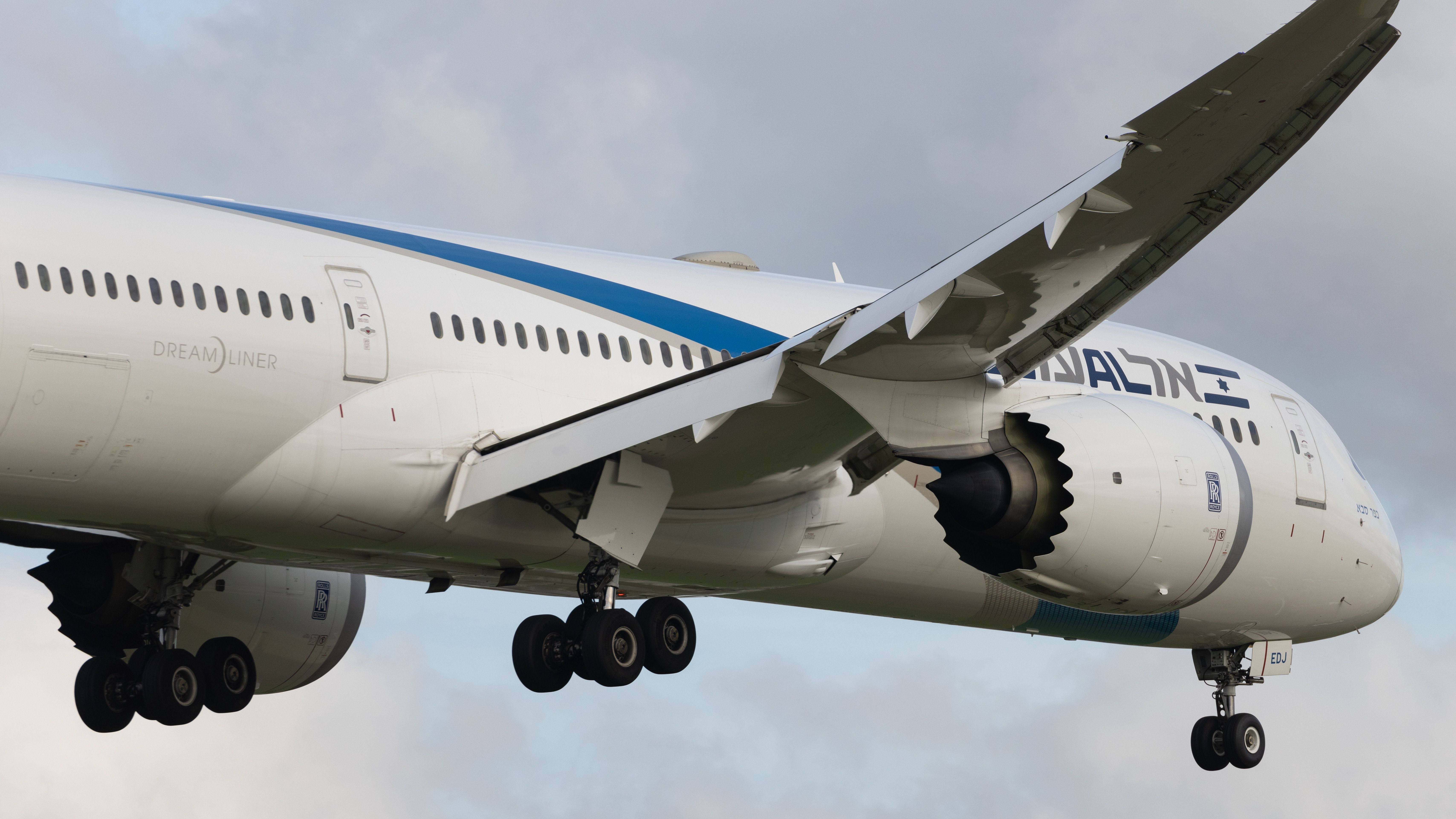Aviation Disruptions Escalate as Airlines Cancel Flights to Israel Amidst Attacks

Aviation Disruptions Escalate as Airlines Cancel Flights to Israel Amidst Attacks
In a shocking turn of events, airlines around the world are scrambling to cancel flights to Israel as tensions escalate in the region due to a surprise attack launched by Palestinian militants. The militants fired thousands of rockets from Gaza into nearby Israeli towns during a Jewish holiday, leaving the aviation industry grappling with disruptions and safety concerns.
As of Saturday afternoon, approximately 16% of flights to Ben Gurion International Airport, Israel’s primary international hub just outside Tel Aviv, were canceled, with an additional 23% facing delays. The situation has led to Israel-bound flights being diverted to alternative airports across the globe, creating a chaotic scene for travelers.
One such incident involved United Airlines Flight 954, which departed from San Francisco International Airport on Friday night. Approximately seven hours into its more than 13-hour-long journey, the flight was forced to divert over Greenland due to the escalating conflict. Ultimately, it returned to San Francisco.
United Airlines issued a statement regarding the incident, emphasizing the airline’s unwavering commitment to passenger and crew safety. “The safety of our customers and crews is our top priority,” the statement read. “We are closely monitoring the situation and adjusting flight schedules as required.”
Delta Air Lines and American Airlines have also taken precautionary measures, canceling Israel-bound flights scheduled to depart from John F. Kennedy International Airport in New York City over the weekend, according to data from FlightAware.

Adding to the growing list of cancellations, German airline Lufthansa announced its decision to significantly reduce flights to Tel Aviv in light of the ongoing security situation. Lufthansa Group Airlines, in a statement, elaborated on the decision, stating, “Against the background of the current security situation in Israel, Lufthansa Group Airlines is reducing its flight program to/from Tel Aviv this Saturday.”
While there will still be one flight from Tel Aviv to Frankfurt on Saturday, all other Lufthansa flights to the region have been canceled. The airline emphasized its commitment to monitoring the dynamic security situation and maintaining close contact with authorities, with passenger and crew safety as its paramount concern.
The impact of these flight cancellations has not been limited to just a few airlines; it has sent ripples across the aviation industry, affecting numerous carriers and travelers. Swiss Air, Austrian Airlines, and Turkish Airlines, as reported by the popular Israeli news outlet Walla! News, have all canceled flights to and from Israel in response to the heightened tensions in the region.
This escalation in aviation disruptions has raised significant concerns for passengers, airlines, and authorities alike. Let’s delve deeper into the various facets of this unfolding crisis.
The Escalation of Conflict
The sudden outbreak of violence stems from an attack launched by Palestinian militants who fired thousands of rockets from the Gaza Strip into Israeli towns. This attack coincided with a Jewish holiday, creating an atmosphere of fear and uncertainty among Israelis and tourists alike. The conflict has escalated rapidly, prompting airlines to take immediate action to safeguard their passengers and crews.

Airlines Prioritize Safety
Airlines have made it abundantly clear that passenger and crew safety is their foremost concern. United Airlines, in its statement, emphasized its commitment to monitoring the situation and adjusting flight schedules as required. This proactive approach is mirrored by other carriers, such as Delta Air Lines and American Airlines, which canceled Israel-bound flights to mitigate potential risks.
German airline Lufthansa, while significantly reducing its flights to Tel Aviv, expressed its unwavering dedication to the safety of passengers and crew members. The airline’s decision to maintain only one flight to Frankfurt on Saturday underscores the seriousness of the security situation.
Global Impact on Travel
The disruptions in flights to Israel have had a global impact, affecting travelers from various parts of the world. Passengers who had planned trips to Israel now find themselves dealing with canceled flights, rebooking challenges, and uncertainty regarding when they can safely travel to the region. This situation has placed a heavy burden on airlines as they strive to accommodate affected passengers and manage their operations in the midst of a crisis.
International Airlines Respond
Swiss Air, Austrian Airlines, and Turkish Airlines, prominent carriers operating in Europe and the Middle East, have joined the list of airlines canceling flights to and from Israel. These decisions reflect the gravity of the situation and the importance of prioritizing passenger safety above all else.
The cancellations have left travelers stranded or scrambling to find alternative routes to their destinations. As airlines grapple with this evolving crisis, the travel industry as a whole is facing immense challenges, including logistical hurdles and financial implications.
Traveler Uncertainty
Travelers with plans to visit Israel in the coming days and weeks are understandably anxious and uncertain about the status of their flights. The ongoing conflict has introduced a high degree of unpredictability, making it challenging for passengers to make informed decisions about their travel arrangements. This uncertainty has underscored the need for airlines to remain agile in their response to the evolving situation.
Impact on Tourism
Beyond the immediate concerns of travelers, the aviation disruptions have also cast a shadow on Israel’s tourism industry. The country has been a popular destination for tourists seeking to explore its rich history, culture, and religious sites. However, the current conflict has disrupted tourism plans, potentially causing long-term economic repercussions for the nation’s tourism sector.
The Israeli government and tourism authorities will face the daunting task of restoring confidence in travelers once the situation stabilizes. Rebuilding the tourism industry may require a concerted effort to assure travelers of their safety and promote the country as a welcoming and secure destination.

Diplomatic Efforts for De-escalation
Amidst the turmoil, diplomatic efforts are underway to de-escalate the situation and bring about a ceasefire. The international community, including the United Nations and various nations, has called for an end to the violence and a return to peaceful negotiations.
The resolution of the conflict will play a crucial role in determining when airlines can resume regular flights to Israel without compromising safety. Passengers and airlines alike will be closely monitoring diplomatic developments in the hope of a swift and peaceful resolution to the crisis.
Conclusion
The aviation disruptions caused by the recent conflict in Israel have left travelers and airlines grappling with unprecedented challenges. While airlines prioritize safety and passengers face uncertainty, the situation underscores the need for continued diplomacy and efforts to restore peace in the region.
As the world watches the developments in Israel with concern, the aviation industry will remain vigilant in its commitment to safety while also hoping for a swift resolution to the conflict that will allow travelers to return to the skies with confidence. Until then, travelers and airlines must navigate the complex and ever-changing landscape of international travel during times of turmoil.




